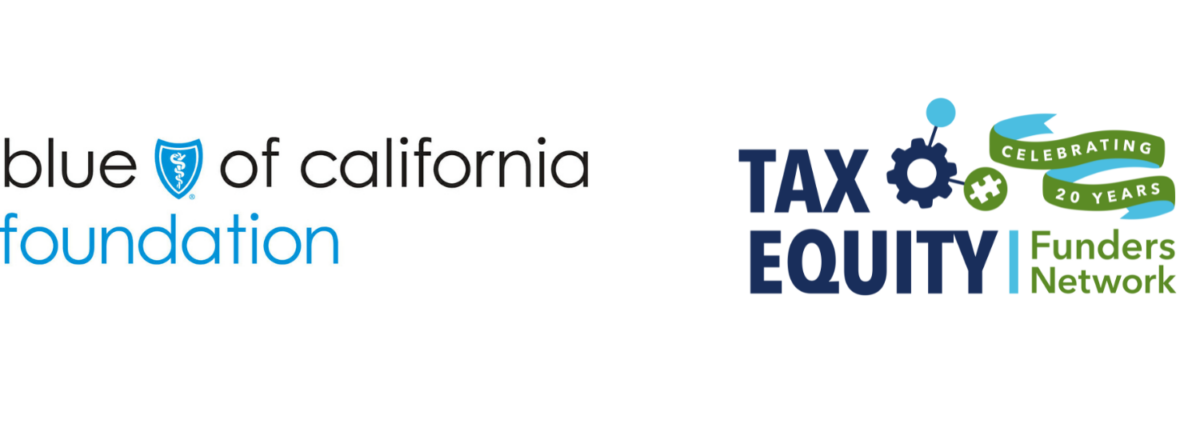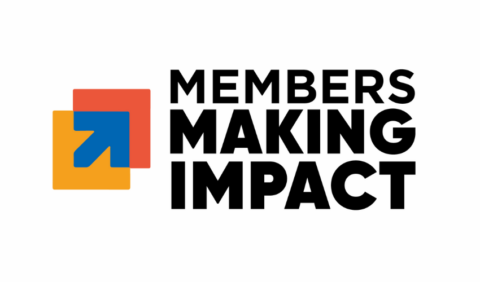Ami Nagle, Director, Tax Equity Funders Network
Rachel Wick, Senior Program Officer, Blue Shield of California Foundation
Last month brought the latest release of annual poverty data from the Census Bureau and the heartbreaking news that California continues to have the highest poverty rate in the country ( 18.9%), with disproportionate impact felt by Californians of color, including Latinx (25.0%) and Black (22.3%) residents, and nearly one in five children growing up in poverty.
What’s particularly shameful is that we know what to do about it. Pandemic-era federal and state investments decreased poverty for the first time in decades and the expiration of many of these benefits catapulted Californians back into poverty. They now face the stress and struggle of impossible decisions between food, rent, health care, and child care amidst rising costs of goods and services.
The good news for Californians is that our state was an early adopter of expanded state tax credits, like the California Earned Income Tax Credit (CalEITC) and the Young Child Tax Credit–programs that put much-needed cash back into the hands of low-income families–and protected these benefits amidst this year’s budget crisis. While budget shortfalls and federal gridlock create barriers to further expansions, one of the key roles California funders can play is to ensure that everyone who is eligible for existing tax credits is accessing them, especially Black and Latinx households.
Earlier this year Blue Shield of California Foundation and the Tax Equity Funders Network, in partnership with the Asset Funders Network, League of California Community Foundations, and Northern California Grantmakers hosted a three-part virtual Funder Learning Series designed to deepen funders’ awareness and understanding of systems improvements needed to ensure all those who are eligible gain access to tax credits in California.
Three key insights emerged from our series:
- Many non-filers, typically the lowest income households and disproportionately people of color, are missing out on the tax credits and benefits they qualify for. The complexity of the filing process, in addition to a lack of awareness and distrust of government, is the biggest barrier to filing taxes and receiving benefits.
- The majority of filers use paid tax preparers, resulting in a loss of millions of dollars for individuals and families with low incomes. In 2024, the IRS responded to this challenge by piloting a free filing tool called Direct File. California was one of 11 sites to participate and 33,328 Californians utilized the tool, saving an estimated $5.6 million in tax preparation fees, with 72% of those filing received a refund. The IRS has announced it will make Direct File a permanent option for filing federal tax returns starting in the 2025 tax season.
- California is a national leader in expanding tax credits to include immigrants with Individual taxpayer identification numbers (ITINs). However, a federal backlog in application processing and a moratorium on training additional Certified Acceptance Agents–the staff needed to process ITIN applications–has made obtaining ITINs particularly difficult in recent years. Both of these barriers have been lifted, creating an opportunity to grow and strengthen the network of Certified Acceptance Agents in California in partnership with free tax preparation sites and organizations serving immigrant communities.
What interested funders can do to help get cash into people’s hands:
- Build awareness among grantees and communities you work with about eligibility for tax credits among Californians of color (students, parents of young children, immigrants)
- Support local coalitions and networks that help connect people with free and low-cost tax filing options, especially given the impact of reductions in state funding for tax outreach this year
- Advocate for free and low-cost tax preparation services and tools to be made available in multiple languages
- Build awareness about the new IRS free filing tool and the state’s CalFile tool and state advocates working to ensure integration of these tools
- Support nonprofit partners to become Certified Acceptance Agents that can help immigrants obtain Individual Tax Identification Numbers in partnership with free and low-cost tax filing sites
- Support additional data collection and analysis to help illuminate who is not accessing tax credits and other benefits, why, and strategies to overcome the barriers.
- Fund organizations that advocate to improve and expand these systems.
- Network with funder colleagues working on these issues!
This fall we will continue our virtual Funder Learning Series designed to dive deep on a few key topics and work towards greater alignment in our funding strategies. Click here to join us.


